85% of the brain development we will ever have in our entire lives, happens by our third birthday. So many life outcomes hinge on what happens to our brains in early childhood. Everything from being able to maintain healthy relationships with other people—to our earning potential, trace back to our first years. But when we talk about the forces that affect early childhood development, we rarely talk about streets.
Childhood health policy still tends to focus on the parenting choices of individuals. We talk about the challenges of attachment and bonding—whether or not parents are speaking with their child often enough, we talk about breastfeeding.
But it’s as if all of this is happening in a vacuum. What are the environmental conditions within which these parenting practices are happening? And to what extent are those conditions in fact obstacles to healthy childhoods?
In Tirana, a city that has built a reputation for rapid urban transformation through a political message of centering the needs of children, we work on bridging early childhood development with neighborhood planning and design, and building understanding of the political and spatial ramifications of that project.
We frame childhood health as a systemic environmental design problem that begins with governance. Reframing the issue this way centers the political will and know-how of city governments, as opposed to the choices of individuals.
In pursuit of better health outcomes for young children and their caregivers, we provide technical assistance to the Municipality of Tirana to mainstream early childhood and caregiver-sensitive practices across the municipal administration. Mainstreaming capitalizes on the political will we currently have in the city, to embed knowledge that can endure across election cycles.
Research needs proof of concept. In the spring of 2021, after a year focused on data collection, design guidelines, and community building, we opened the first school street pilot in the city of Tirana, with a focus on protected walking space and play. We are currently expanding this pilot into a city-wide program of school streets at ten new sites.
Over the past four years we have worked with over 200 city of Tirana staff across six key departments. Together we have co-authored comprehensive neighborhood design guidelines that take into account local materials and construction techniques, as well as a set of neighborhood data indicators.
Our approach to data is that it is key to making equitable investment decisions, but that it needs to be gathered in ways that are explicitly people-centered and non-intrusive. That approach recommends face to face methods like surveys rather than sensors. While this kind of data isn’t live, the kinds of data we believe are needed for good decision making at the neighborhood level don’t need to be.
Evaluation and monitoring, design guidance, and implementation work in a virtuous cycle of experimentation with material techniques and public feedback to produce public demand for better streets and public spaces.
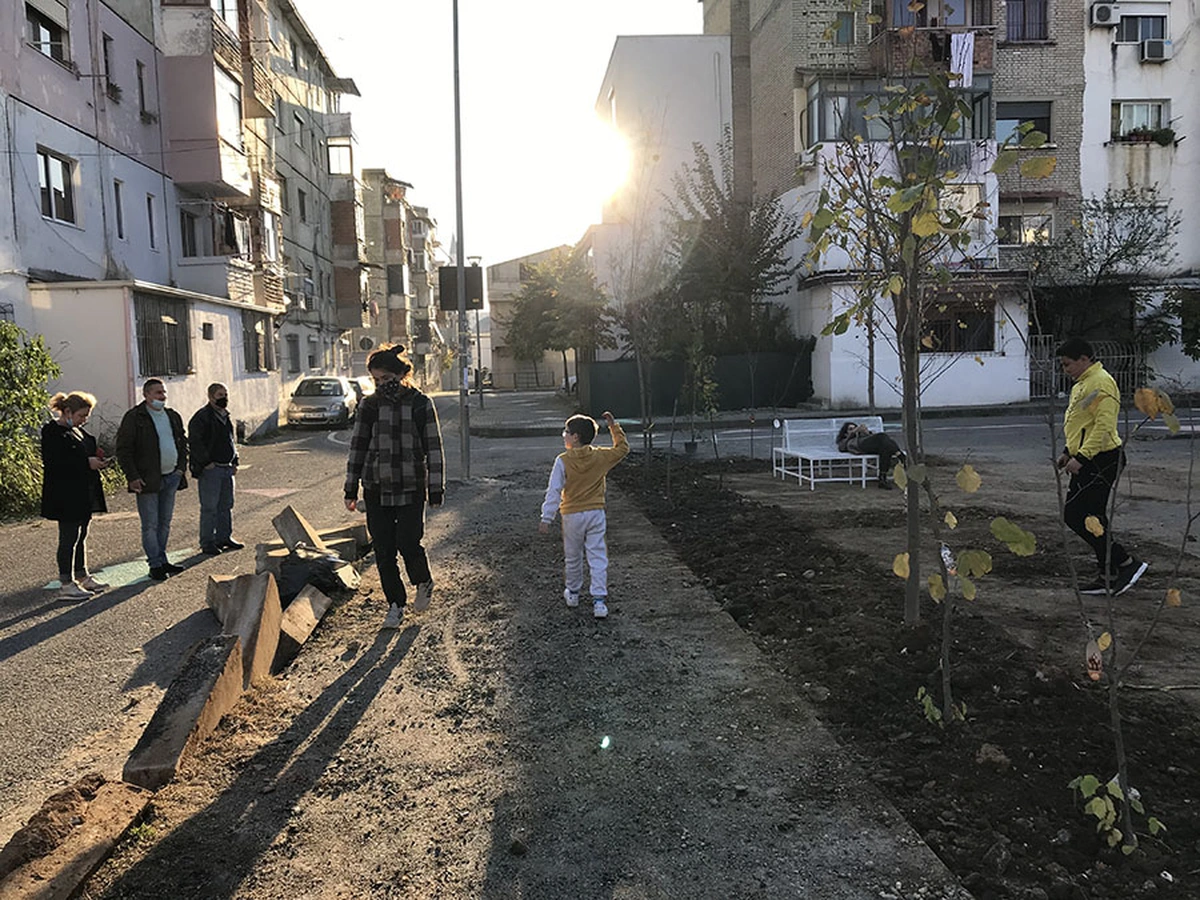
The end of a day of implementation, transforming a parking lot into a public space.
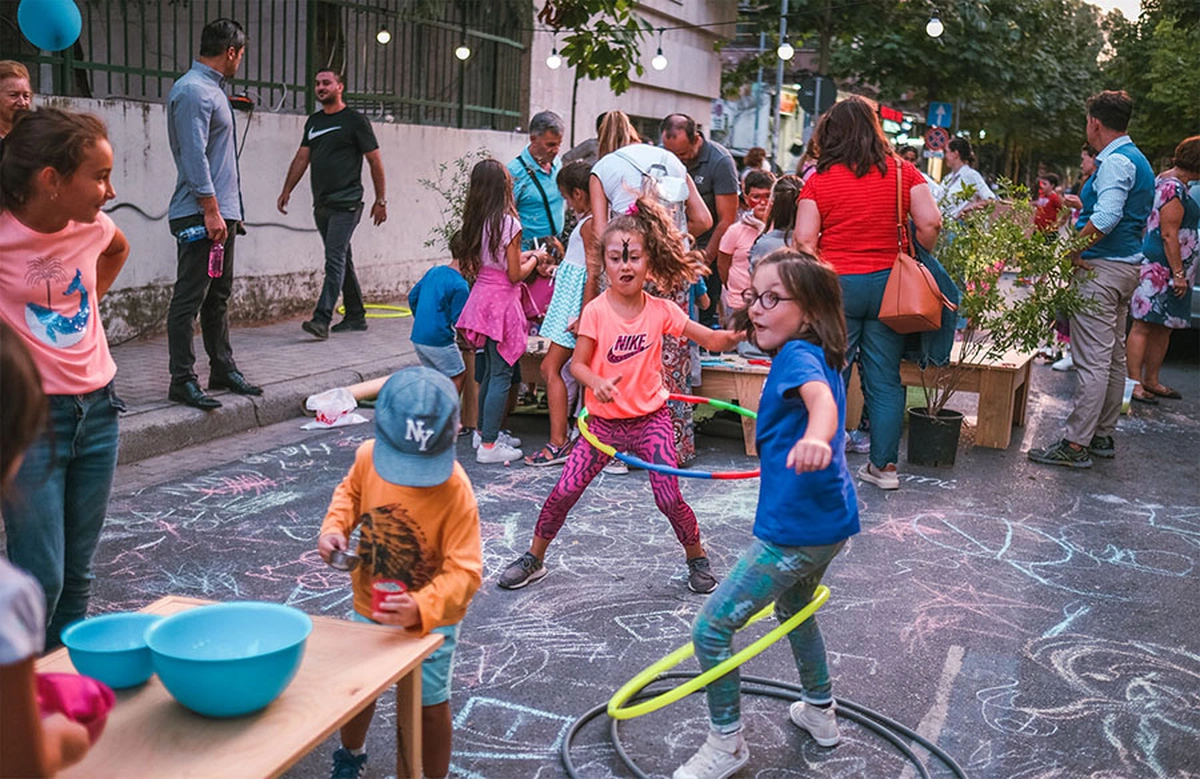
A school street pop-up at Edith Durham school in Tirana.
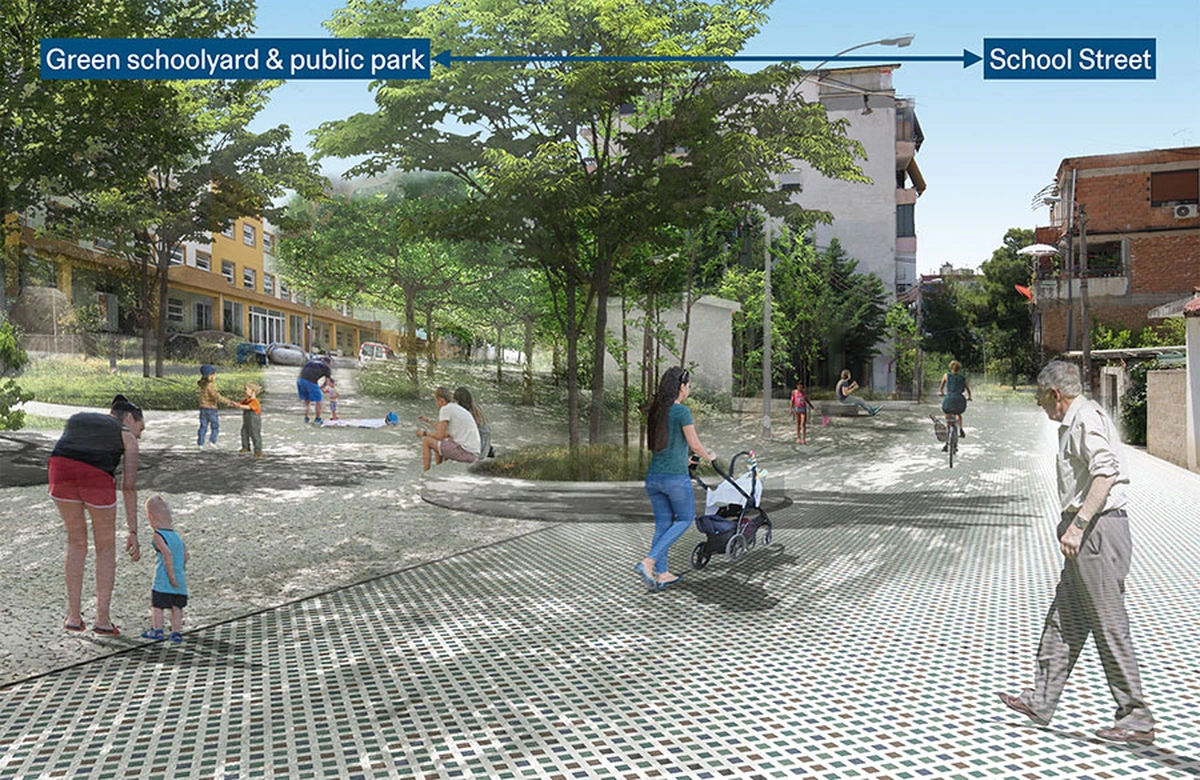
Image demonstrating a school as the center of neighborhood life.
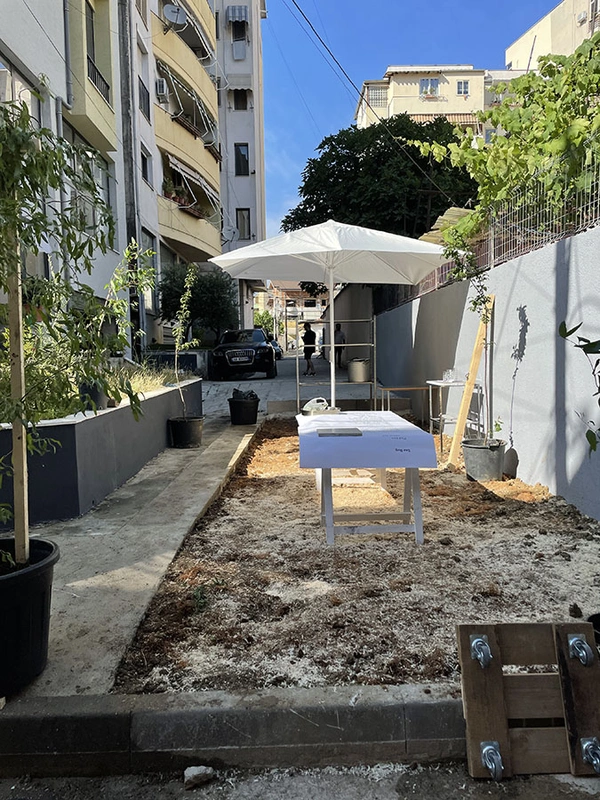
A plot of dirt we slowly transform into public use, with the soil remediation as the medium and content of the project.
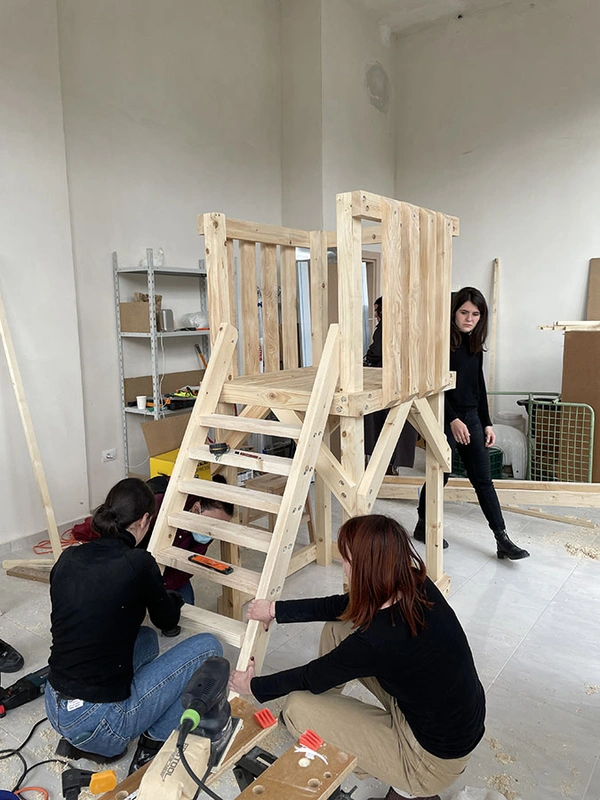
Project space where we can build furniture and equipment.
QM is a study center with a workshop, library, and gathering space for public events, and QM is a team. We are a group of people from varied backgrounds who work together on a project about critically understanding the impacts of neighborhood planning interventions. We are architects, urban planners, geographers, graphic designers, nutrition and food systems experts, transit engineers, community organizers, and social workers.
We host visitors in Tirana interested in participating in this work, from experts in town for a week, to PhD students who join us for three months as part of their research. Every year we run a 10-week fellowship with students in residence from the planning department at the Harvard University Graduate School of Design.
We also collaborate with groups and individuals in other cities in various forms of exchange, which are often built into funding schemes.
